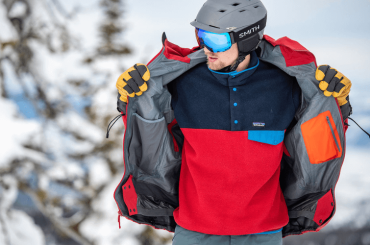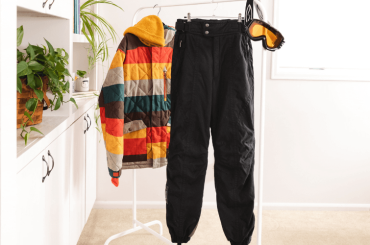Snowboarding is a fun winter activity, but is there a weight limit? Can anyone snowboard or do you have to be thin and fit?
In this blog post, we will explore the weight limit for snowboarding and answer some common questions.
Do Snowboards Have a Weight Limit?
When it comes to snowboarding, weight isn’t as big of a factor as you might think. People of all sizes can snowboard and have a great time doing it.
The weight limit for snowboarding is around 200-250 pounds. Most snowboards can support a rider up to 250 pounds, but if you are close to this weight limit.
It is important to check with the manufacturer of your board to make sure it can accommodate your weight. For example: Burton Snowboards have a weight limit of 250 pounds for their men’s boards and 200 pounds for their women’s boards.
Weight limit for snowboarding at different resorts?
Most resorts don’t have a weight limit for snowboarding, but some of the more popular ones do.
Vail Resorts has a weight limit of 250 pounds for both men and women. And Park City Mountain Resort has a weight limit of 235 pounds for men and 210 pounds for women.
If you are close to the weight limit at any of these resorts, it is always best to check with them before heading out to make sure that there aren’t any restrictions in place.
How do you know if you are within the weight limit?
There are a few different ways that you can find out if you are within the weight limit for snowboarding.
- Search online: If you do a quick search online, you may be able to find the weight limit for the specific snowboard that you have.
- Check the lift tickets: When you purchase your lift ticket, there is usually a section that lists the weight limit for each ride.
- Mail to the resort: You can always give the resort a call or shoot them an email to inquire about their weight limit.
- Ask the staff: If you are still unsure, you can always ask one of the staff members at the resort. They will be able to tell you the weight limit for each ride.
- Check the label: Finally, you can always check the label on your snowboard to see what the weight limit is.
What happens if you exceed the weight limit?
- If you exceed the weight limit for snowboarding, it is possible that you may break the equipment or it is also possible that the bindings will not fit properly.
- It is important to make sure that the board is not too wide for your body size. If it is, it will be difficult to control and could lead to accidents.
- Always follow the manufacturer’s weight limits to avoid any accidents.
Tips for staying within the weight limit?
If you’re trying to stay within a weight limit, here are some tips that may help:
- Choose your gear wisely: Some snowboards and bindings are heavier than others. Also, consider opting for a lighter helmet and clothing.
- Practice at home: Before heading to the slopes, ensure you know how to carry and lift your gear properly.
- Try to avoid eating processed or packaged foods, as they tend to be high in salt and fat.
- When cooking, use healthy oils like olive oil instead of butter or other fatty oils.
- Drink plenty of water throughout the day.
- Avoid sugary drinks, alcohol and caffeine.
- Avoid snacking on high-calorie foods.
- Exercise regularly.
Alternatives to snowboarding for those who are over the weight limit.
There are a few alternatives to snowboarding for those who are over the weight limit:
- Skiing is a great option for those who are looking for a similar experience to snowboarding but without the extra weight.
- Snowshoeing is another option that can be just as fun as snowboarding. It’s also a great workout!
- If you want to stay on the slopes, try cross-country skiing. This is a great option for all levels of skiers and can be done at your own pace.
- Finally, consider taking a sledding or tubing trip down the slopes. This is a great way to enjoy the winter without having to worry about the extra weight.
FAQS – Weight Limit For Snowboarding
Can a 300-pound person snowboard?
There is no definitive answer to this question. However, many people who are snowboarding successfully at a high level are well over 300 pounds.
Some of the most successful competitive snowboarders weigh in at over 400 pounds.
What happens if I’m too heavy for a snowboard?
If you are too heavy for your snowboard, it will negatively affect your ability to balance and control your speed.
This can make it difficult to stay on your feet and may lead to more falls.
What size snowboard do I need for my height and weight?
There are a variety of snowboards on the market, and the right one for you will depend on your height and weight.
If you are a heavier person, you will likely need a longer and wider snowboard. You can consult a sizing chart to find the right size for you.
Why does weight matter in snowboarding?
Weight is a factor in snowboarding because it affects your ability to balance and control your speed.
Heavier riders will usually need a wider board, as well as a stiffer flex.
Final Words
Snowboarders come in all shapes and sizes, but there is a recommended weight limit to keep everyone safe while riding down the slopes.
The weight limit for snowboarding isn’t as restrictive as you might think. Most adults will fall within the range of 80-250 pounds. If you happen to weigh more than 250 pounds, don’t worry.
At resorts across North America, the average weight limit for snowboarding seems to be around 240 pounds. This may vary depending on your location, so it’s always best to check with your resort before hitting the slopes.





